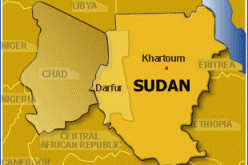 This is Day – The Redeemed Christian Church of God (RCCG), City of David Parish, Victoria Island, Lagos as part of its social responsibility recently launched a dialysis unit in Victoria Island at the Healing Stripes Hospital, which will serve the public in the environs irrespective of class or social strata.
This is Day – The Redeemed Christian Church of God (RCCG), City of David Parish, Victoria Island, Lagos as part of its social responsibility recently launched a dialysis unit in Victoria Island at the Healing Stripes Hospital, which will serve the public in the environs irrespective of class or social strata.
According to the medical director, Healing Stripes Hospital, Dr. Ezinne Onyemere, “we realised that people who have to be dialysed are on the increase and spend a lot on it, and most times, they have to go for dialysis twice or three times in a week. So we sat down, and thought of how we could help these people and we decided to get the dialysis machines.”
She said Healing Stripes dialysis unit has two dialysis machines, which are used for hemodialysis. The medical director explained that dialysis is a treatment that does some of the things done by a healthy kidney. According to her, “you need dialysis when you develop end stage kidney failure, usually by the time you lose about 85 to 90 percent of your kidney function and have a GFR of less than 15 (< 15).”
Onyemere also noted that there are two types of dialysis, the hemodialysis and the peritoneal dialysis. Hemodialysis, as she said, is a type of dialysis where an artificial kidney (hemodialyser) is used to remove waste and chemical fluids from the blood. She stated that the time needed for dialysis depends on some factors which includes, how well your kidneys work; how much fluid weight you gain between treatments; how much waste you have in your body; how big you are and the type of artificial kidney used. Usually, she added, each hemodialysis lasts for about four hours and is done three times per week.
However, the question is, what difference does it make receiving dialysis at Healing Stripes? Healing Stripes, which believes in service, love, kindness, patience, and other Christian virtues, promised that dialysis in its centre the service would be at a subsidised rate. Onyemere acknowledged this by saying: “at Healing Stripes, we aim at making it easy for those who have to be dialysed by subsidising the price. We charge less than what others charge for dialysis.
Healing Stripes Hospital began operation in June 2010 as an outpatient clinic, a CSR arm of City of David Parish. In 2012, it became a full-fledged hospital with diagnostic centre. It recently acquired two dialysis machines, which was formerly dedicated by Dr.Okey Onuzo, one of the pioneers of dialysis treatment in the country.
For many who do not understand functions of kidney in the human body, it is dark red bean-shaped organs in the body and its size is about 10-13cm, that is, approximately the size of the conventional computer mouse. It is amazing how small the kidney is for the giant role, which it does in the body. The kidney is located towards the back of the abdominal cavity just above the waist and it comes in pairs just like several other organs in the human body, both located in each retroperitoneal region of the abdomen.
Functions of the kidney includes, but not limited to the following, it is a major excretory organ, removing wastes such as urea and creatinine and other nitrogenous compounds through urine. Note that when these substances are not removed from the body, they damage the cells of the body because they are poisonous. The kidneys produce an important substance called erythropoletin without which red blood cells cannot be formed. Also, calcium can only be absorbed in the presence of vitamin D and it is the kidney and the liver that synthesizes vitamin D.
Statistics from the World Kidney Day held in March show that about 36.8 million Nigerians suffer from kidney disease, which is about 28 percent of the Nigerian population suffering from kidney disorder. When kidney becomes damaged, waste products and fluid can build up in the body, causing swelling in the ankles, vomiting, weakness, poor sleep and shortness of breath. If left untreated, diseased kidneys may eventually stop functioning completely. Loss of kidney function is a serious and potentially fatal condition. Acute failure is reversible but when a permanent kidney failure develops, this would be fatal unless the affected person receives a kidney transplant or a long term dialysis treatment.
There are some diseases, which can affect the kidney, these include, alport syndrome, diabetic rephropathy, fabry disease, kidney stones, kidney cancer, polycystic kidney disease (pkd), chronic renal failures and others. In Nigeria today, the major causes of kidney diseases are hypertension and diabetes mellitus, which is on the increase. Factors causing hypertension has been attributed to these findings which includes our increasing rate of westernisation and ingestion of high levels of salts, increasing intake of unwholesome drugs and fake drugs.
On its own part, the progressive increasing prevalence of diabetes is associated with lifestyle changes, over weight and obesity, physical inactivity, dietary changes, alcohol consumption and cigarette smoking. Infections and infestations of the kidneys are also very common cause in Nigeria, especially in the younger group.
To be certain of the wellbeing of the kidneys, the National Kidney Foundation (NKF) recommends three simple steps to check for kidney disease. The first is blood pressure, which is the second common cause of kidney disease and can also happen as a result of kidney disease. The second recommendation is urinalysis, a test that checks for the presence of protein, blood (red or the white blood cells) and other substances in the urine. Having protein in the urine is one of the earliest signs of kidney disease especially in people with diabetes. While the last step is the glomerular filtration rate (GFR). The GFR tells how well your kidneys are working to remove wastes from the blood.










